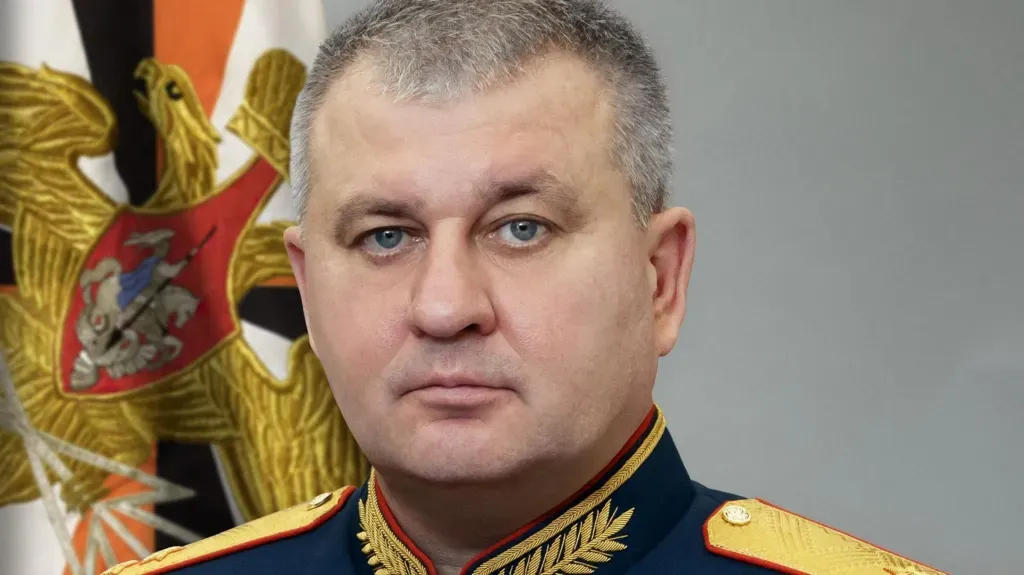In a significant development in Russia’s ongoing anti-corruption drive, Lt Gen Vadim Shamarin has been formally dismissed from his position following his arrest on bribery charges earlier this year. This move is part of a broader crackdown on corruption within the Russian Defence Ministry, which has seen several high-ranking officials removed from their posts. The case of Lt Gen Shamarin highlights the Kremlin’s intensified efforts to address corruption and improve military efficiency amidst ongoing conflicts in Ukraine.
Details of the Bribery Allegations
Lt Gen Vadim Shamarin, formerly the deputy chief of the army’s general staff overseeing the signals corps and military communications, was arrested in May 2024. According to Russian state media, Shamarin has been accused of accepting a “particularly large bribe” from a telecommunications company. The prosecution alleges that Shamarin received bribes between April 2016 and October 2023 to facilitate increased orders from the company’s factory.
As part of the investigation, authorities have seized Shamarin’s car—a Mercedes—and frozen his salary card. A military court in Moscow is scheduled to decide later on Thursday whether to extend his pre-trial detention until October. His lawyer, Igor Dyukin, has confirmed the seizure of Shamarin’s assets, underscoring the seriousness of the charges.
Broader Context of the Crackdown
Shamarin’s dismissal is part of a larger anti-corruption campaign that has seen multiple senior defence officials detained. This includes Deputy Defence Minister Timur Ivanov and Lt Gen Yuri Kuznetsov, head of the Defence Ministry’s personnel directorate. The campaign intensified following Russian President Vladimir Putin’s dismissal of Defence Minister Sergei Shoigu in May, a position now held by economist Andrei Belousov, who has minimal military experience.
Experts suggest that the Kremlin’s actions are aimed at boosting the efficiency of the Russian military and addressing corruption issues that may be undermining its effectiveness. This crackdown coincides with Russia’s modest gains in eastern Ukraine, particularly in the Donbas region, where fierce fighting continues as Moscow’s forces attempt to breach Ukrainian defensive lines.
Impact on Peace Negotiations
In the realm of international diplomacy, Russia’s stance on peace negotiations remains firm. Foreign Ministry spokeswoman Maria Zakharova has dismissed efforts to force Russia into peace talks, particularly those proposed by Ukrainian President Volodymyr Zelensky. Zakharova criticized any ultimatums based on Zelensky’s conditions, which include recognizing Russia’s claims over four Ukrainian territories in the south and east of Ukraine.
President Putin’s demands for peace talks include Kyiv’s recognition of these territorial claims, a condition Zelensky has vehemently rejected. Zelensky has stated that he will not engage in discussions with Putin or any Russian representatives until Russian forces withdraw from Ukrainian territory. His position was reinforced during a recent gathering of European leaders at the UK’s Blenheim Palace, where he condemned attempts to negotiate with Russia behind Ukraine’s back.
Recent Diplomatic Developments
The diplomatic landscape has been further complicated by recent visits and meetings involving Russian officials. Notably, Hungarian Prime Minister Viktor Orban’s visit to Moscow, where he met with President Putin, has drawn criticism. The meeting has been perceived as an attempt to broker deals with Russia independently of Ukraine, further straining international relations and complicating the peace process.
Conclusion
The dismissal of Lt Gen Vadim Shamarin amidst bribery allegations marks a critical moment in Russia’s fight against corruption within its military ranks. This development reflects the Kremlin’s efforts to address inefficiencies and corruption as the conflict in Ukraine continues to evolve. Meanwhile, the ongoing diplomatic tensions and the firm stance of Ukrainian President Volodymyr Zelensky highlight the complexities and challenges of achieving peace in the region. As the situation unfolds, both military and diplomatic maneuvers will be closely scrutinized for their impact on the broader geopolitical landscape.
FAQ
1. Why was Lt Gen Vadim Shamarin dismissed?
Lt Gen Vadim Shamarin was dismissed following his arrest on bribery charges. He is accused of accepting large bribes from a telecommunications company to increase orders from its factory.
2. What are the specific allegations against Shamarin?
Shamarin is accused of accepting bribes between April 2016 and October 2023. The charges include taking bribes to secure an increase in orders from the company’s factory.
3. What actions have been taken against Shamarin?
Authorities have seized Shamarin’s Mercedes car and frozen his salary card. A military court will decide whether to extend his pre-trial detention until October.
4. How does Shamarin’s case fit into the broader anti-corruption drive in Russia?
Shamarin’s dismissal is part of a wider anti-corruption campaign within the Russian Defence Ministry, which has also seen other senior officials detained. The crackdown follows President Putin’s dismissal of Defence Minister Sergei Shoigu.
5. What is the current status of peace negotiations between Russia and Ukraine?
Peace negotiations remain stalled, with Russian demands including Kyiv’s recognition of Russian claims over four Ukrainian territories. Ukrainian President Volodymyr Zelensky has rejected these terms and stated he will not engage in talks until Russian forces leave Ukrainian territory.


